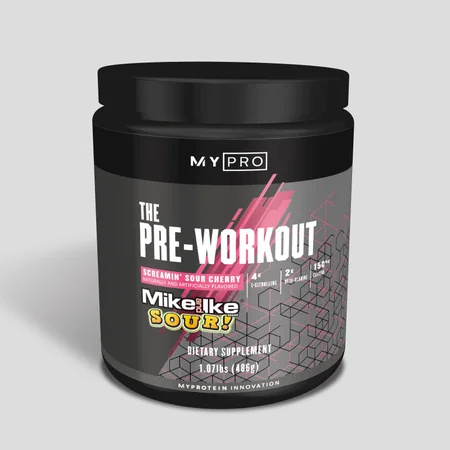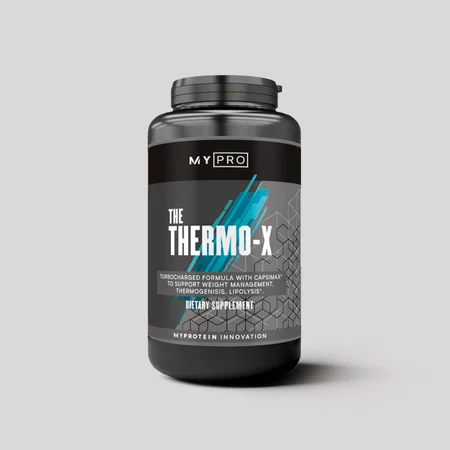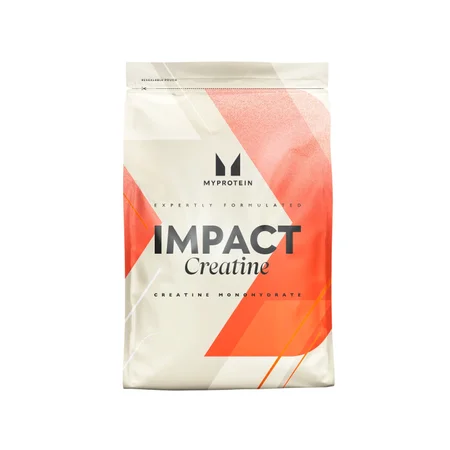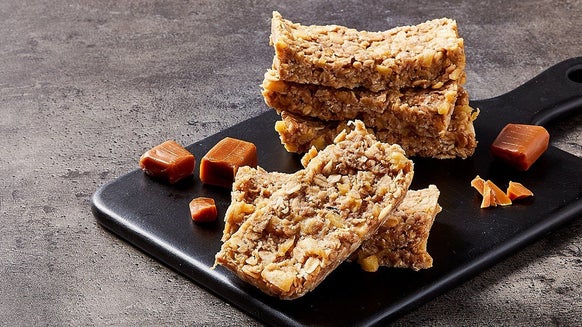Creatine Pills vs. Powder | Which Is Better?

Creatine pills vs powder, which one is better?
Creatine is one of the most popular performance-enhancing supplements available to athletes looking to go the extra mile and weightlifters trying to lift greater volumes for bigger gains. But how much does the way you take your dose of creatine affect the results?
And with so many different forms of the supplement available on the market, which one is the best and which one is for you?
We'll get into that later. First, let's take a look at just what creatine is.
What Is Creatine?
Creatine is a molecule found naturally in the body and may also be ingested from food sources including seafood, eggs, and meat.
Creatine is composed of three amino acids: glycine, arginine, and methionine. It can be considered a backup source of energy, as opposed to a super-drug that will give you instant gains.
What are the benefits of creatine?
Creatine has been shown to improve exercise performance, disorders of creatine metabolism or transport, muscle strength and mass, and age-related muscle loss1 (sarcopenia). The primary reason athletes take creatine is to build muscle.
When should you take creatine?
Creatine can be taken any time of day; the efficacy of the supplement will not be affected by the time of day you take it.
Should I take creatine every day?
Many studies have shown that creatine is effective for increasing exercise performance and strength performance when taken daily. A good way to take the supplement is to begin with a loading period and then move into a maintenance period. During both periods, you should take creatine daily 2 to see the best results.
How much water should I drink when taking creatine?
When supplementing with creatine, the water being pulled into the muscle must be replaced. To do this, you must drink more water than normal when taking creatine. Drinking excessive amounts of water can cause bloating, so it is important to increase your water intake slowly at first, until you find a level that is right for you.
So you have done your research on this wonder supplement, but now you are uncertain whether the powder or pill form is the best. Opinions are widespread, with many suggesting there is little difference between the two.
However, certain minor advantages and disadvantages may be taken into account before you begin your loading phase. Now, let's look at the pros and cons of creatine pills vs creatine powder.

Creatine Pills vs Powder: Advantages and Disadvantages
Creatine Powder
First, the pros and cons of creatine powder. It doesn’t transport easily. Anyone that has kept some in a shaker in their gym bag for when the time comes to train will know that the amount you measured doesn’t always end up being swallowed.
What doesn’t go up in a puff when you lift the lid can cling to the sides and corners, and can sometimes congeal in the shaker.
It doesn’t always blend with ease and can add a bitter chemical taste to your whey or whatever you mix it with when drinking.
These are all minor points, of course, in the bigger picture of creatine’s many health advantages.
In this respect, pills are the better option as you can better measure your intake with none of the mess. So what are the positives to powder?
Powder is more affordable, and we know that month on month the supplement shopping list can add up.
During the loading phase, you will be taking sometimes three to five times the recommended 3 – 5 mg dose. In pill form that means three times the pills, meaning you will see your supplies quickly diminish at the start of each cycle.
Creatine Pills
In pill form, creatine must first be digested before it can be used by your body. As a powder, it can be more readily absorbed. This is a major plus in favor of powder for anyone taking several supplements on a regular basis.
Why create another obstacle for your digestive system if an alternative is available? Add creatine pills to the vitamin tablets and any others that you take and, if shaken, you’ll rattle.
But why does the speed with which you digest creatine matter? There is much debate about the effectiveness of when to take creatine, but there is no conclusive evidence to suggest it is best when taken before or after exercise.
The unanimous opinion suggests a loading phase should be implemented, wherein you take three times the normal daily amount of creatine every day for two weeks to saturate your cells.
How quickly creatine is then absorbed into your system, subject to future studies, does not necessarily alter the results of your workout (as long as it is loaded constantly in your system).
Variety is key, and by choosing powder you will be able to create health cocktails of your own creation. Either way, it's a good way to achieve the gains you are looking for.
More and more as you progress as an athlete and learn your body’s capabilities and your goals, it is advisable to identify what you want to get out of your supplements. In doing so, you can cut out blends and make your own, based on what you want.
By mixing creatine powder with other workout beverages that are sugar-loaded, you can also increase your insulin levels.
Does creatine make you bigger?
In any form, creatine has been regularly shown to2 increase strength, fat-free mass, and muscle morphology in combination with heavy resistance training more than resistance training alone. By increasing creatine storage and the rate of ATP regeneration, supplementing with creatine helps to increase performance and training ability.2
How does creatine help build muscle?
Creatine is used in the body to make energy for muscles. 95% of the body's creatine stores are found in skeletal muscle.1
Creatine speeds up the natural process of how our bodies produce Adenosine Triphosphate (ATP). ATP is used up and quickly depletes during high-intensity exercise.
By supplementing creatine, you can increase the ability to store more, meaning that more ATP can be produced during exercise.
Your muscle tissue stores creatine as phosphocreatine. Phosphocreatine synthesizes during high-intensity exercises, such as lifting weights, to provide your muscles with extra energy.
Creatine pulls water into your muscle cells, increasing protein synthesis. It is not a provider of extra energy in the same way as boosters like caffeine and glucose, but increases your reserves, thus allowing you to work harder for longer – therein lies the gains.
Will creatine make you gain weight?
Creatine can make you gain weight in the form of lean body mass.3 Because creatine increases muscle, your weight will naturally increase as well. You may also gain weight due to the water retention in your muscle cells that results from taking Creatine, but this weight is not visible on the body. You do not gain body fat from supplementing with creatine.
Is creatine a steroid?
Creatine is not a steroid and is not similar to steroids in its effect on the body. Steroids are considered drugs while creatine is considered a natural supplement. Anabolic steroids 4 are a synthetic form of testosterone and can increase muscle mass by increasing muscle protein synthesis through influencing the genetic expression of muscle-specific genes. Supplementing with creatine also increases muscle protein synthesis 4,but by pulling water into your muscle cells. Creatine also increases ATP production 4, and this over time can lead to increased muscle mass through increased training performance.

Is taking creatine good for you?
Creatine can have many positive health effects 2 and has been shown to improve neurological and cognitive function. In older adults, creatine has been linked to 2 fatigue resistance and increased strength, muscle mass, bone mineral density, and performance of activities of daily living.
Does creatine affect you sexually?
No evidence suggests that creatine has any sexual impact.
Does creatine raise testosterone?
Creatine has not been shown to raise testosterone levels. Many studies 4 have reported no change in testosterone levels when subjects supplemented with creatine; this includes total testosterone, free testosterone, and DHT (the metabolite of testosterone linked to hair loss in men).
How quickly does creatine work?
It can take between 7 to 28 days 5 to see the energy effects of creatine.
Does creatine affect mood?
While more research needs to be done, creatine has been shown in several studies to have a positive effect on mood. According to the Journal of the International Society of Sports Nutrition 4, creatine has been shown to improve mood and alleviate symptoms of depression in adolescent females. Additionally, another study demonstrated that creatine boosted mood 6 in patients with Parkinson's Disease. Creatine was also shown to reduce mental fatigue in healthy individuals and improve mood and reduce fatigue in sleep deprived individuals in a clinical trial 7 published in the Journal of Psychopharmacology.
Does creatine help you lose weight?
Creatine does not help you lose weight, and you should not take the supplement if weight loss is your goal. However, creatine will help you build lean muscle mass.

Truth About Creatine 'Helping' Weight Loss | Nutritionist Reveals All
Yet more creatine myth-busting.
Is creatine good for your body?
Supplementing with creatine can have positive effects on the body including boosting mood and alleviating symptoms of certain metabolic and musculoskeletal disorders, among others.
Is taking creatine safe?
Taking creatine is currently considered safe and ethical 2. When taken in appropriate doses, creatine is likely safe to take for up to five years 3. And just like with any supplement, you'll want to ensure you choose a creatine that follows recommended manufacturing practices and goes through third-party testing to ensure quality, like Myprotein's Creatine Monohydrate Powder .
Is it okay to take creatine before bed?
Yes, taking creatine before bed is totally fine. The supplement is not a stimulant, and thus there is no issue with taking it before bed, or whatever time of day works best for you.

Is It Bad To Take Creatine Before Bed?
All of your creatine-timing questions answered, right here.
What are the negative effects of creatine?
According to the research, there are no proven negative health effects for healthy individuals when taking creatine, both short and long-term. The health risks demonstrated applied only to those who were already diagnosed with specific health conditions 2 like bipolar disorder or renal health disorders.
Some people experience mild side effects such as bloating, weight gain, water retention, and gastrointestinal upset. These side effects are likely due to the high dosage of Creatine most people take. Lowering your dose if you experience any of these side effects will likely alleviate them 8. For the general population, there are no known negative side effects 2 of supplementing with creatine.
Take Home Message
Creatine is made up of amino acids and is largely obtained from your diet. Creatine pulls water into your muscles and increases protein synthesis.
High-protein foods like fish, eggs, and meat are rich in creatine. You can also get creatine by supplementing. Supplementing with creatine actually has many health benefits and can help you reach your weight goals in a safe way.
For convenience, creatine pills may be the best route if you're looking to supplement.
On the other hand, creatine pills are not as easily absorbed into the body as creatine powder is. Creatine powder is rapidly absorbed into the body, letting it do its job faster.
However, for somebody constantly on the move, creatine powder is not easily transported. For those types, choosing creatine pills may be the best bet.
All in all, research shows little difference between the two forms of the creatine supplement. In turn, it really comes down to preference.
So which do you prefer? Would you rather your creatine supplement work at a faster rate or would you rather get it over with quickly by taking this supplement as a pill?
There are pros and cons to both forms. Either way, creatine is an essential supplement for building muscle mass. If you're having trouble bulking up, taking creatine may be the best way to get gains fast.
READ THESE NEXT:
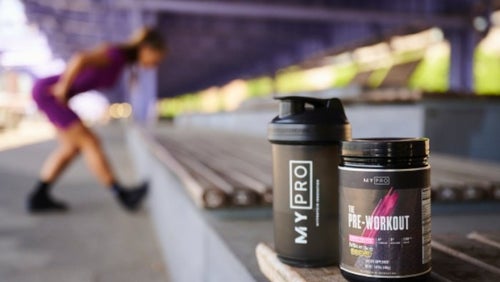
What is a Creatine Cycle?
Breaking down the creatine cycle and how to properly take the supplement for best results.

Should I Use Creatine When Cutting?
Creatine is not just for bulking- it's a great supplement choice for cutting too. Here's why.

Creatine HCL vs. Monohydrate | Which Is Better?
Comparing creatine monohydrate to creatine HCL, what's the difference and which will give you results?

Alice Pearson is a UKVRN Registered Associate Nutritionist and UK Anti‐Doping accredited advisor, having obtained a Bachelor’s of Science in Nutrition and a Master’s of Science in Sport Nutrition. She has a specialist interest in the use of sports supplements for improving health, fitness, and sport performance. Alice has experience working with both amateur and elite athletes, including providing nutritional support to Tranmere Rovers FC and Newcastle Falcons Rugby Club. Her nutritional guidance is always supported by evidence‐based research, which she keeps up to date through continuing professional development and independent learning. In her spare time, Alice loves travelling, hitting the gym, and getting stuck into a good book. Find out more about Alice's story here.
- U.S. National Library of Medicine. (n.d.). Creatine: Medlineplus supplements. MedlinePlus. Retrieved November 19, 2022, from https://medlineplus.gov/druginfo/natural/873.html
- Cooper, R., Naclerio, F., Allgrove, J., & Jimenez, A. (2012, July 20). Creatine supplementation with specific view to exercise/sports performance: An update. Journal of the International Society of Sports Nutrition. Retrieved November 19, 2022, from https://www.ncbi.nlm.nih.gov/pmc/articles/PMC3407788/
- Mayo Foundation for Medical Education and Research. (2021, February 9). Creatine. Mayo Clinic. Retrieved November 19, 2022, from https://www.mayoclinic.org/drugs-supplements-creatine/art-20347591
- Antonio, J., Candow, D. G., Forbes, S. C., Gualano, B., Jagim, A. R., Kreider, R. B., Rawson, E. S., Smith-Ryan, A. E., VanDusseldorp, T. A., Willoughby, D. S., & Ziegenfuss, T. N. (2021, February 8). Common questions and misconceptions about creatine supplementation: What does the scientific evidence really show? Journal of the International Society of Sports Nutrition. Retrieved November 19, 2022, from https://www.ncbi.nlm.nih.gov/pmc/articles/PMC7871530/
- Creatine & Creatine supplements: What is creatine, are supplements safe. Cleveland Clinic. (n.d.). Retrieved November 19, 2022, from https://my.clevelandclinic.org/health/articles/17674-creatine-and-creatine-supplements#:~:text=It%20will%20take%20seven%20to,or%20trying%20to%20lose%20weight.
- Creatine. Mount Sinai Health System. (n.d.). Retrieved November 19, 2022, from https://www.mountsinai.org/health-library/supplement/creatine
- Allen, P. J. (2012, May). Creatine metabolism and psychiatric disorders: Does creatine supplementation have therapeutic value? Neuroscience and biobehavioral reviews. Retrieved November 19, 2022, from https://www.ncbi.nlm.nih.gov/pmc/articles/PMC3340488/
- De Franca, E., Avelar, B., Santana, J. O., & Fernandes Yoshioka, C. A. (2015, December). Creatine hcl and creatine monohydrate improve strength but only … Retrieved November 21, 2022, from https://www.researchgate.net/publication/288670717_Creatine_HCl_and_Creatine_Monohydrate_Improve_Strength_but_Only_Creatine_HCl_Induced_Changes_on_Body_Composition_in_Recreational_Weightlifters
